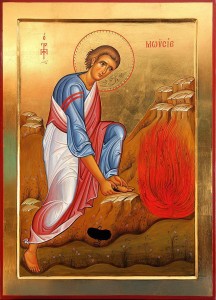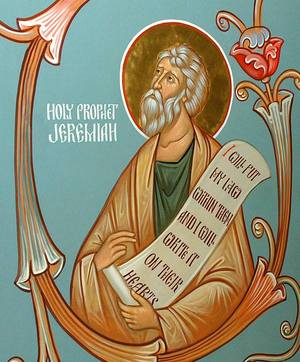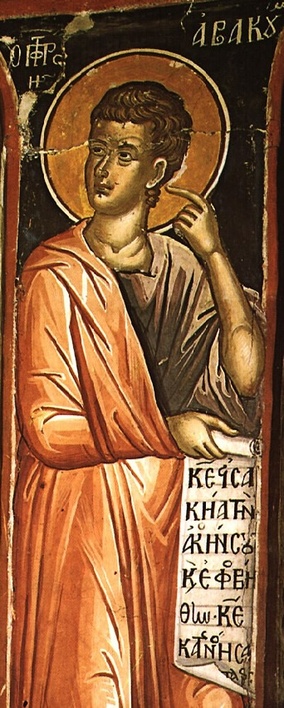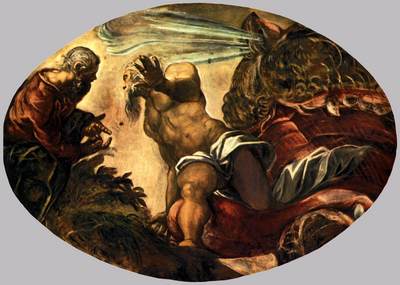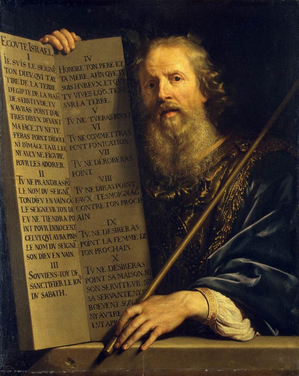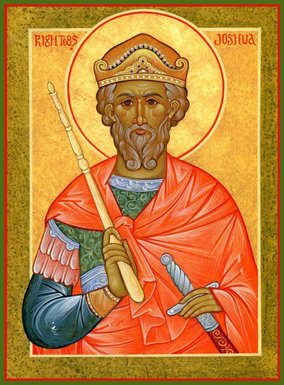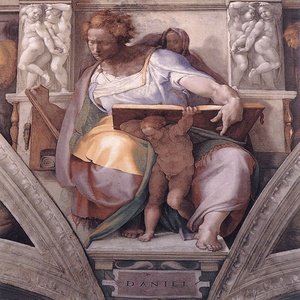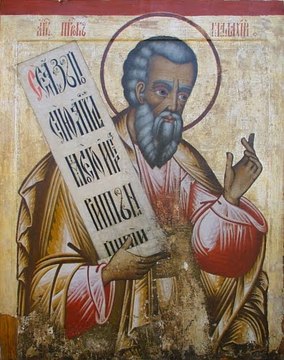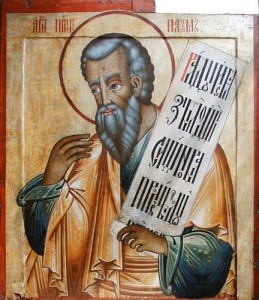 The sacred Liturgy, at least the Byzantine Church, recalls the person of the Holy Prophet Nahum, whose name means “God consoles.” The particularities of Nahum’s life are unknown. Historically we know that the Prophet Nahum came from the village of Elkosh (Galilee) and lived during the seventh century B.C. He died at the age of forty-five, and was buried in his native region. He is the seventh of the Twelve Minor Prophets. How fitting in this era of civil upheaval, personal anxiety, and the temptation to nihilism. The liturgical remembrance of the prophets is a little unusual for Latin Catholics but as we know, nomen omen, the name means something, the name of a person shows that person’s God-given mission to the world.
The sacred Liturgy, at least the Byzantine Church, recalls the person of the Holy Prophet Nahum, whose name means “God consoles.” The particularities of Nahum’s life are unknown. Historically we know that the Prophet Nahum came from the village of Elkosh (Galilee) and lived during the seventh century B.C. He died at the age of forty-five, and was buried in his native region. He is the seventh of the Twelve Minor Prophets. How fitting in this era of civil upheaval, personal anxiety, and the temptation to nihilism. The liturgical remembrance of the prophets is a little unusual for Latin Catholics but as we know, nomen omen, the name means something, the name of a person shows that person’s God-given mission to the world.
Scholars tell us that Nahum is distinguished from most of the prophets because he neither issues any call to repentance (metanoia), nor denounce Israel for their infidelity to God. The text is one of the richest in image and composition. But in the Office of Prophet that he exercised, Nahum did speak of the ruin of the Assyrian city of Nineveh because of its iniquity, the destruction of the Israelite kingdom, and the blasphemy of King Sennacherib against God. The Assyrian king Ashurbanipal died in 632 B.C., and over the next two decades, his empire began to crumble. Nineveh fell in 612 B.C. All this leads to the catastrophic demise of Jerusalem by the Babylonians in 586 B.C.
The book of Nahum places a strong emphasis on the God’s absolute sovereignty over everything.
The Byzantine Church ask for the Prophet Nahum and Saint Nahum of Ochrid’s (December 23) for people with mental disorders.
